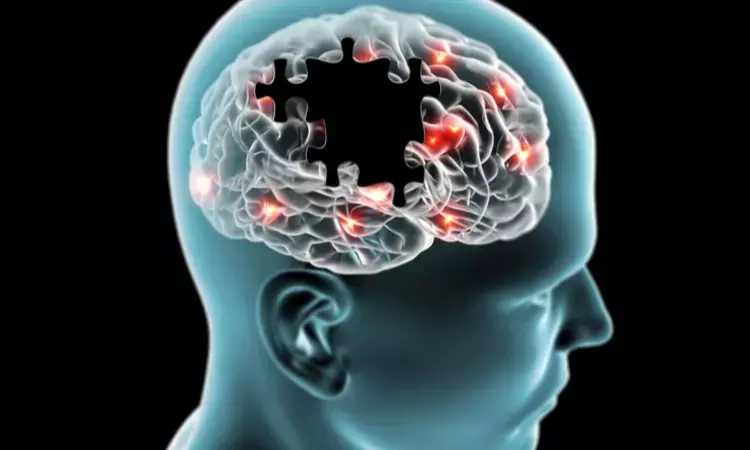- Home
- Medical news & Guidelines
- Anesthesiology
- Cardiology and CTVS
- Critical Care
- Dentistry
- Dermatology
- Diabetes and Endocrinology
- ENT
- Gastroenterology
- Medicine
- Nephrology
- Neurology
- Obstretics-Gynaecology
- Oncology
- Ophthalmology
- Orthopaedics
- Pediatrics-Neonatology
- Psychiatry
- Pulmonology
- Radiology
- Surgery
- Urology
- Laboratory Medicine
- Diet
- Nursing
- Paramedical
- Physiotherapy
- Health news
- Fact Check
- Bone Health Fact Check
- Brain Health Fact Check
- Cancer Related Fact Check
- Child Care Fact Check
- Dental and oral health fact check
- Diabetes and metabolic health fact check
- Diet and Nutrition Fact Check
- Eye and ENT Care Fact Check
- Fitness fact check
- Gut health fact check
- Heart health fact check
- Kidney health fact check
- Medical education fact check
- Men's health fact check
- Respiratory fact check
- Skin and hair care fact check
- Vaccine and Immunization fact check
- Women's health fact check
- AYUSH
- State News
- Andaman and Nicobar Islands
- Andhra Pradesh
- Arunachal Pradesh
- Assam
- Bihar
- Chandigarh
- Chattisgarh
- Dadra and Nagar Haveli
- Daman and Diu
- Delhi
- Goa
- Gujarat
- Haryana
- Himachal Pradesh
- Jammu & Kashmir
- Jharkhand
- Karnataka
- Kerala
- Ladakh
- Lakshadweep
- Madhya Pradesh
- Maharashtra
- Manipur
- Meghalaya
- Mizoram
- Nagaland
- Odisha
- Puducherry
- Punjab
- Rajasthan
- Sikkim
- Tamil Nadu
- Telangana
- Tripura
- Uttar Pradesh
- Uttrakhand
- West Bengal
- Medical Education
- Industry
Increased RDW May Be Considered as a Biomarker of Mild Cognitive Impairment : Study

In a study conducted in Shanghai, China, researchers have discovered a promising blood biomarker that could aid in the early detection of mild cognitive impairment (MCI), often considered a precursor to Alzheimer's disease (AD). The study, which involved participants from the Heqing Community, has shed light on the potential role of red blood cell distribution width (RDW) in identifying individuals at risk of cognitive decline.
MCI, characterized by subtle cognitive deficits that do not significantly impact daily functioning, affects a substantial portion of the elderly population in China. Epidemiological investigations have shown that the prevalence of MCI among urban Chinese adults aged 60 and 65 is 15.5% and 20%, respectively, with approximately one-third of these individuals progressing to dementia.
The study, led by a team of dedicated physicians, recruited 750 participants aged 65 and above who underwent cognitive assessments using the Montreal Cognitive Assessment (MoCA) and Clinical Dementia Rating (CDR) scales. Among them, 550 individuals voluntarily underwent blood examinations, which revealed a significant association between increased RDW and MCI.
Interestingly, the study also found that female gender and low education levels were risk factors for MCI. This finding aligns with previous evidence suggesting that the sex-specific pathophysiological mechanisms behind AD risk are influenced by the menopause transition, a midlife neuroendocrine transition state unique to females. Additionally, years of education have been linked to the prevalence of MCI in prior studies.
Further analysis of the cognitive domains assessed by MoCA revealed that RDW was negatively correlated with scores in all domains, with the strongest correlation observed for attention. This finding suggests that attention impairment could serve as a sensitive marker for MCI, a notion supported by binary regression analysis showing that impaired attention had the greatest weight among the cognitive domains in MCI.
The study's findings have significant implications for the early detection and management of cognitive impairment. RDW, a readily available and inexpensive hematologic measure, could offer valuable insights into an individual's risk of developing MCI and, potentially, AD. By identifying those at risk early on, healthcare professionals can implement targeted interventions and support strategies to mitigate cognitive decline and improve quality of life.
Reference
Yang, Juan; Sui, Haijing; Song, Haihan; Jiao, Ronghong; Zhao, Xiaohui.
Red Cell Distribution Width is Related to Mild Cognitive Impairment: A Cross-Sectional Study of Community Residents. Neurology India 72(1):p 64-68, Jan–Feb 2024.
DOI: 10.4103/ni.ni_211_22
MBBS, DrNB Neurosurgery
Krishna Shah, MBBS, DrNB Neurosurgery. She did her MBBS from GMC, Jamnagar, and there after did direct 6 Year DrNB Neurosurgery from Sir Ganga Ram Hospital, Delhi. Her interests lie in Brain and Spine surgery, Neurological disorders, minimally invasive surgeries, Endoscopic brain and spine procedures, as well as research.
Dr Kamal Kant Kohli-MBBS, DTCD- a chest specialist with more than 30 years of practice and a flair for writing clinical articles, Dr Kamal Kant Kohli joined Medical Dialogues as a Chief Editor of Medical News. Besides writing articles, as an editor, he proofreads and verifies all the medical content published on Medical Dialogues including those coming from journals, studies,medical conferences,guidelines etc. Email: drkohli@medicaldialogues.in. Contact no. 011-43720751


